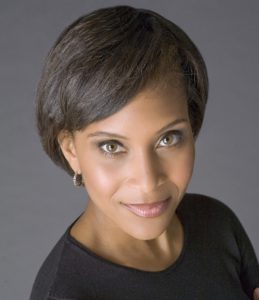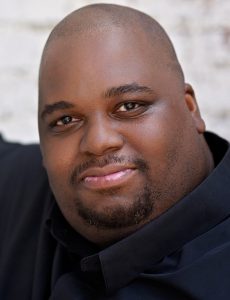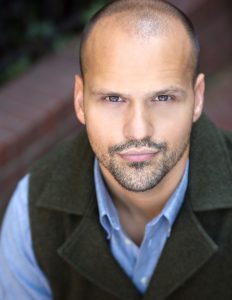Hollywood thrives on cliché, and its treatment of classical music through the years has ranged from the puerile to the downright offensive. When it comes to opera, though, filmmakers have sometimes taken a higher road, using that art form’s intensely expressive qualities to heighten the emotion of a scene, or of an entire film.
An assassination attempt in a film can be all the more gripping in an opera house, for example (Mission Impossible: Rogue Nation), both because of the ferocity of the music and because of the incongruity of such a desperate act in the milieu of well-starched formality.

Soprano Talise Trevigne is a 2016 Grammy Award nominee who has sung with major opera houses around the world.
In some films, opera forms an essential part of a character’s persona, such as Walter Matthau’s Miles Kendig, the amiable, classical-loving CIA agent in Hopscotch who sings Rossini in fluent Italian while driving (“Largo al factotum” with its breathtaking patter).
Opera can even become central to a film’s story-line, as when Julia Roberts discovers (in Pretty Woman) that Verdi had already set her life to music a century earlier (La Traviata: high-class call girl meets an emotionally vulnerable rich dude).
These gems can almost make us forgive screenwriters of appallingly unsophisticated musical instincts who too often portray madmen and serial killers as classical-music fans: from Hannibal Lecter and his beloved Goldberg Variations to Alex in A Clockwork Orange, who uses Beethoven’s Ninth as a soundtrack to his sprees of “ultraviolence.”
No, there’s something about opera that brings out a nobler, more humane side of movie characters and their stories, and these memorable moments form the premise of the Lyric Opera of Kansas City’s inventive season opener, which takes place this November 13th and 14th at the Kauffman Center.
Lyric Opera Goes to Hollywood is a concert of arias and duets with connections to memorable scenes in classic films, featuring four stellar opera singers performing live with the Kansas City Symphony on the Muriel Kauffman Theatre stage.

Conductor David Charles Abell, music director of The Philly POPS, works regularly with the Lyric Opera, most recently in Kathleen Belcher’s production of ‘La Bohème’ in 2019.
Conductor David Charles Abell is joined by soprano Talise Trevigne, mezzo-soprano Ginger Costa-Jackson, tenor Limmie Pulliam, and baritone Edward Parks. David will provide sparing dialogue throughout the program, to help create a sort of through-thread.
“We wanted to create a bridge between the perception of opera and what opera actually is,” said Deborah Sandler, the Lyric’s general director. Moviegoers often find themselves impressed by musical moments in film without realizing they are actually hearing opera: Such moments can help break down perceptions of opera as elitist.
“People say, ‘Oh, I didn’t realize this is from an opera. … Maybe I’m more familiar with opera than I thought I was,’ ” Deborah said. Dramatic films, in particular, trade in intense feelings, and no art form is better at delivering this than opera. “It’s like taking a highlighter to the emotion in a film,” Deborah added.
Since the beginning of the sound era, filmmakers have built stories from screenwriting, scenic design, and a soundtrack. “Some of these directors wanted something more intense at certain moments, so they added the human voice,” said David, a frequent Lyric guest and a veteran of musical theater and opera companies around the world.

Mezzo-soprano Ginger Costa-Jackson has made Carmen a signature role, having sung it with great acclaim around the world. / Photo by Walt Jackson
Intense moments in movies are in fact sometimes referred to as “operatic,” which is telling in and of itself.
“When you really want to express something very extreme, very intense, you turn to music, don’t you?” he said. “And especially sung music. There’s nothing better to bring that out. … That’s why I love conducting it.”
David and the team (which includes Stage Director Crystal Manich, in her Lyric Opera debut) have formed a program that is at once “cinematic” and also makes sense from a musical standpoint: It is essentially a vocal concert.
Each of the four singers performs at least one serious and one lighthearted number, and sometimes they pair up: as in the tenor-baritone “Au fond du temple saint”from Bizet’s The Pearl Fishers (used in the 1981 film Gallipoli) or the “Flower Duet” from Lakmé for soprano and mezzo-soprano (featured in the thriller Someone to Watch Over Me, where glamorous Mimi Rogers’ passion for opera contrasts with Tom Berenger’s lowlier tastes).
The Lyric’s excerpts are gauged to act in counterpoint with one another. Immediately after the tenor and baritone declare (in the Pearl Fishers duet) that they will never let a woman come between their friendship, for instance, a mezzo-soprano from a different Bizet opera (Carmen) scoffs at this buddy-code platitude (in the “Habanera”).

Tenor Limmie Pulliam is a Missouri native who has sung in concert and opera around the United States.
Love is a “rebellious bird,” she sings, which cannot be tamed: Sorry, guys, the lady will indeed come between you, at least for part of the opera.
Similarly, the soprano’s first aria of the evening (“Sempre libera” from Traviata) is a defiant declaration of freedom from the fetters of love, while her second is a melancholy and wildly contrasting lament over having to abandon love and family (“Ebben? Ne andrò lontana” from La Wally, used to mesmerizing effect in the French film Diva).
And the “friendly rivalry” of the men in Pearl Fishers is contrasted with the fiercely inhospitable rivalry between mild-mannered Don José and the arrogant bullfighter Escamillo (the “Toreador Song” from Carmen).
Topping off the program are two of Puccini’s most explosive arias, both of which have been used in highly effective cinematic contexts. Music from Madama Butterfly, with its tale of a fragile woman abandoned by a capricious womanizer, is heard throughout Fatal Attraction.
By the end of the movie, parallels between film and opera become ever more ominous: Butterfly’s “Un bel dì” is heard at the moment we realize that Alex (Glenn Close, motionless, turning a lamp on and off) is about to go completely off the rails.
“Nessun dorma” is heard during what is perhaps the most effective opera scene in recent cinema: Rogue Nation opens smack-bad in the middle of a performance of Turandot at the Vienna State Opera, as Tom Cruise and Rebecca Ferguson attempt to foil an assassination: In a reverential nod to Hitchcock, the fatal shot is to be fired at the moment the tenor soars to his final “vincerò.”

Baritone Edward Parks, who has sung at major houses including the Metropolitan Opera, won a 2019 Grammy Award for the recording of ‘The (R)evolution of Steve Jobs,’ in which he sang the title role.
If the full cinematic effect can be gleaned only vicariously in concert (by those who have seen these films), Puccini’s music provides enough dramatic force to fill the moment.
“Emotion doesn’t get more heightened than in these two arias, that’s why I put them in the end,” David said. “They show what opera can do … how it can overwhelm you unlike any other art form.”
By the same token, if opera fans are unfamiliar with some of these films, the program is also designed to spark curiosity about viewing the movies in question.
Having somehow missed Hopscotch when it first came out, for example, after viewing the “Largo al factotum” scene on YouTube I jumped onto the web to watch what turned out to be a delightfully engaging spy-comedy.
Opera and film: My two favorite things in one package. All this, and heaven too?
—By Paul Horsley
For information and tickets call 816-471-7344 or go to kcopera.org.
To reach Paul Horsley, performing arts editor; send an email to paul@kcindependent.com or find him on Facebook (paul.horsley.501) or Twitter (@phorsleycritic).